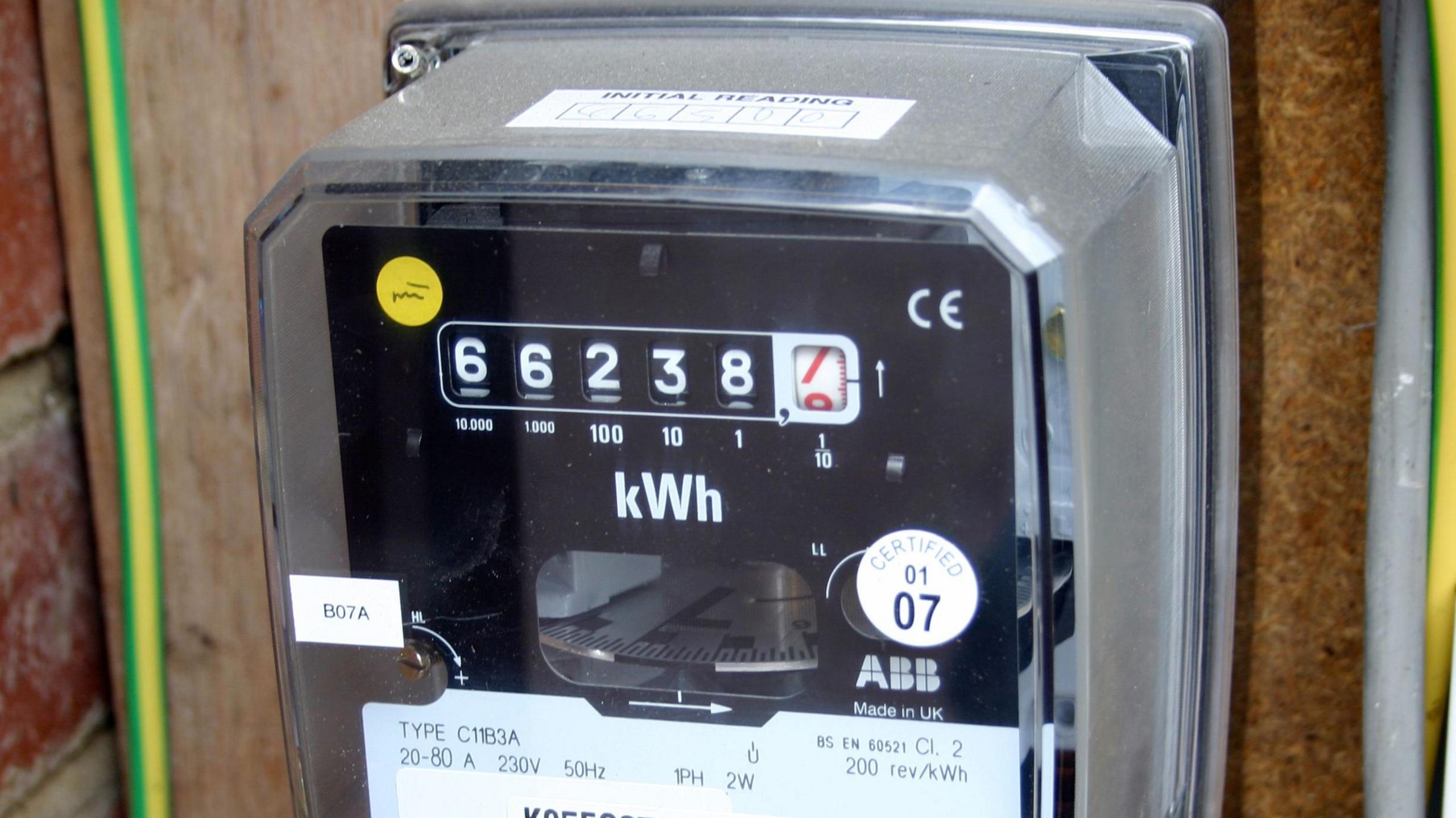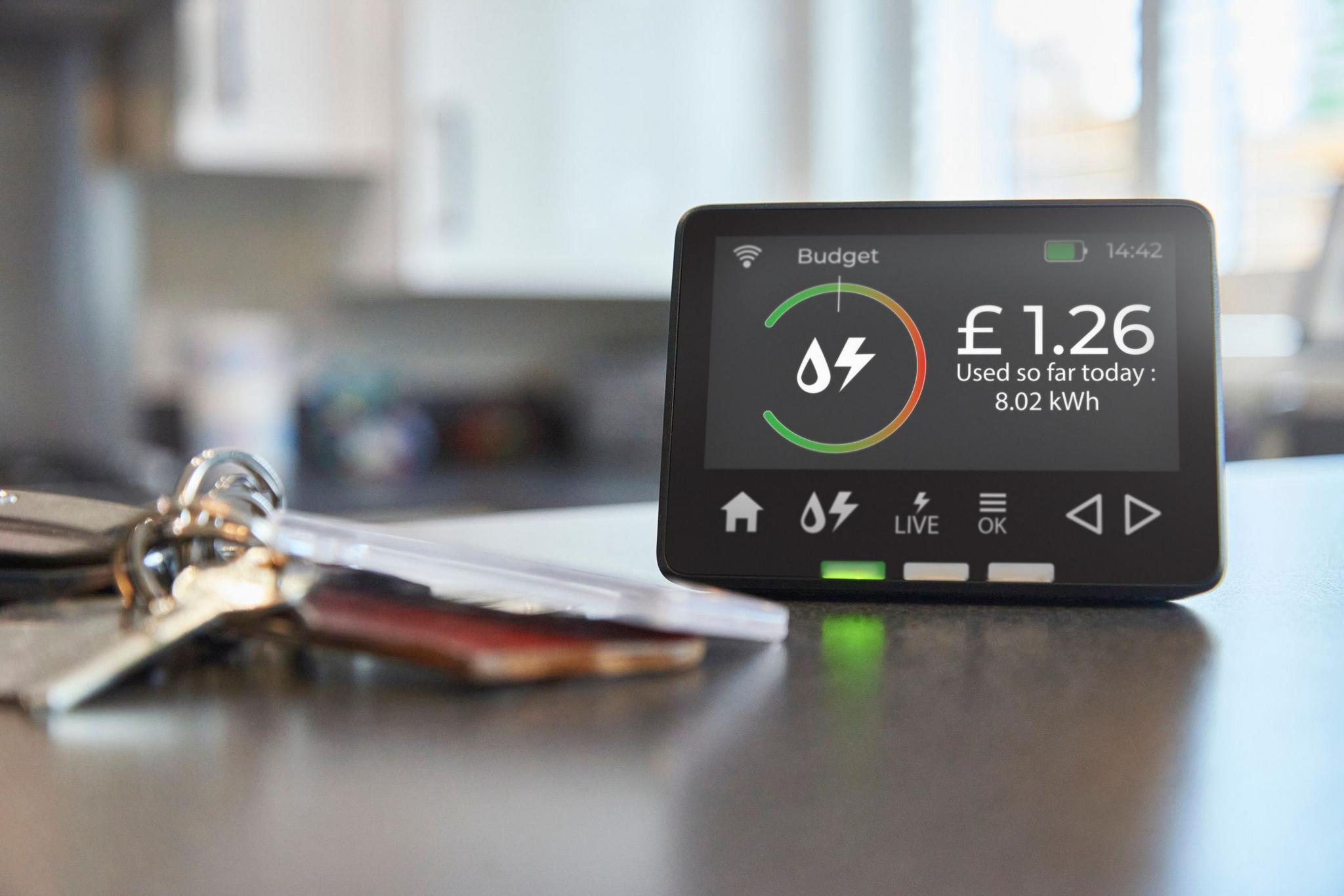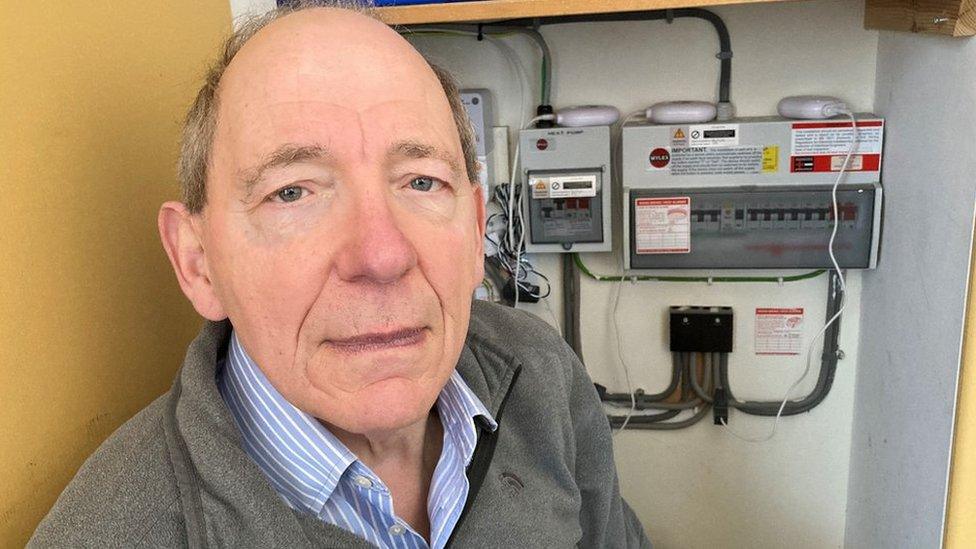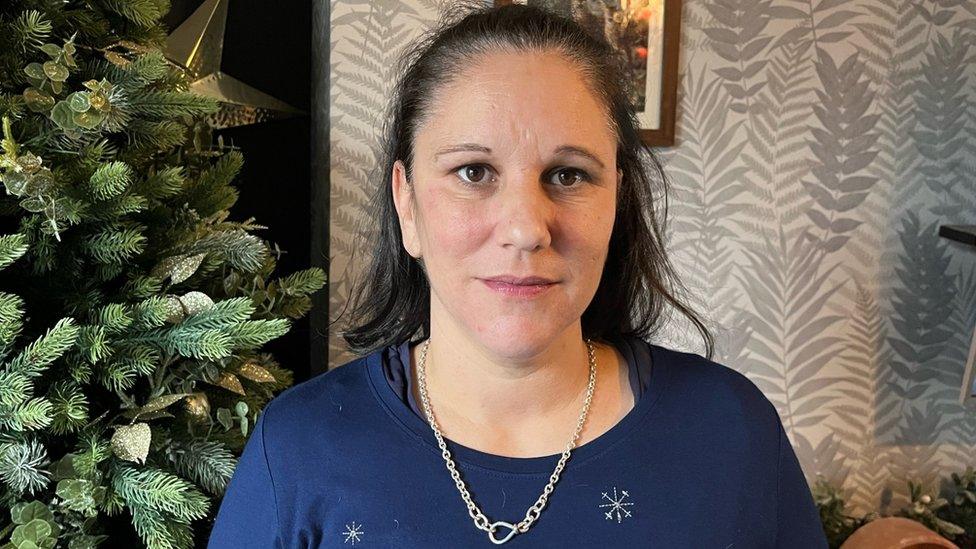Customers face heating problems if meters not replaced

Older meters need to be replaced due to the end of the longwave signal
- Published
Around 175,000 Scottish energy customers face major problems with their home heating systems if they do not have their meters upgraded in the coming months.
The Radio Teleswitching Service (RTS) controls energy tariffs for hundreds of thousands of homes, sending signals to store energy via the BBC's longwave transmitter.
The signal is due to be turned off for good next June but hundreds of thousands of homes have still to be converted to updated systems.
If this does not happen, customers could lose control of heating and hot water, leaving the systems either permanently on or off.
The deadline has already been extended from last March, but energy regulator Ofgem said that work to replace the old infrastructure needed to be accelerated.
Charlotte Friel is its director of consumer protection.
"The pace of replacement is not where it needs to be," she told BBC Radio's Good Morning Scotland programme.
"The industry has been working on RTS replacement for some time and has replaced 200,000 meters this year, but there are still 700,000 to go.
"This call to action is about bringing the industry together and emphasising the pace needed to accelerate the replacement programme, dedicating resources, getting boots on the ground in the right places."
How do you know you have an RTS meter?
Some customers may be unaware their meters are controlled by RTS. But there are clues.
Ms Friel said: "Typically if your meter switches between on and off-peak rates, if your home is heated by electric storage heaters and if you live in a region that is off-gas supply, these are typical features that could mean you have an RTS meter."
The RTS switches the meter from on to off-peak mode. Once that signal is switched off it will mean the customer loses control of their heating and hot water.
This could have different outcomes in different households.
In worst case scenarios, it could mean that the heating and hot water is permanently on or permanently off.
Ms Friel said: "Some of the challenge is around getting customers to engage with their suppliers. Not everyone understands the arrangements they are on and we appreciate that.
"It is on suppliers to reach out to customers but they can play their part too by letting engineers in to upgrade their meters."
She said that the vast majority of cases are straightforward replacements. There will be some more complex installations but Ofgem is confident there is a technical solution for everybody with an RTS meter.

Homes running from the RTS system need to be upgraded to more modern methods before next summer
Frazer Scott, from campaigning group Energy Action Scotland, said there were growing concerns around the switch happening on time.
"With the scale of these changes over such a short period of time, we're really concerned that it's simply not going to happen," he said.
"And the consequences are considerable for all those households that might be affected when it's switched off."
He added: "It is unacceptable that it is so late in the day with so little certainty."
Mr Scott said it now felt as though the industry was working together to solve the issue but described it as the "eleventh hour".
"It is incredibly worrying but at least they've finally got together some kind of taskforce and hopefully this will mean there will be an acceleration in this change," he said.
He said about a quarter of the affected households were in Scotland and the country was "disproportionately affected".
'Certainty' needed
Mr Scott also called for "proper support" for people in case their heating fails.
"People just want a certainty of supply with a much cheaper cost," he added.
"What we're looking for from industry is certainty that people's bills will not rise as a result of making a meter change, which would seem ridiculous.
"But at the moment we've not even got those kinds of assurances from industry, and nor is it clear who will pay for additional costs should a household require them to ensure they have a safe supply to their house."
Minister for Climate Action, Alasdair Allan, said energy infrastructure and regulation are UK government responsibilities but Scottish ministers are "very concerned" about the potential impact of the switch-off.
“We have already written to the energy companies urging them to prioritise RTS customers when progressing the smart meter roll-out programme, in line with the UK Government’s targets, and will continue to press Ofgem and suppliers to lead a coordinated and effective change programme between now and June 2025," he said.
“In the meantime, if consumers have concerns they should contact their energy supplier in the first instance. Free and impartial advice and support is also available from Advice Direct Scotland or Citizens Advice Scotland.”
Related topics
- Published14 March 2024

- Published4 December 2023
